Understanding Variable Valve Timing: How It Boosts Your Car’s Performance
August 29, 2024
Variable Valve Timing (VVT) is a sophisticated technology found in many modern vehicles.
It enhances engine performance, improves fuel efficiency, and reduces emissions. Let’s take a closer look at what VVT is, how it works, and why it matters for your car.
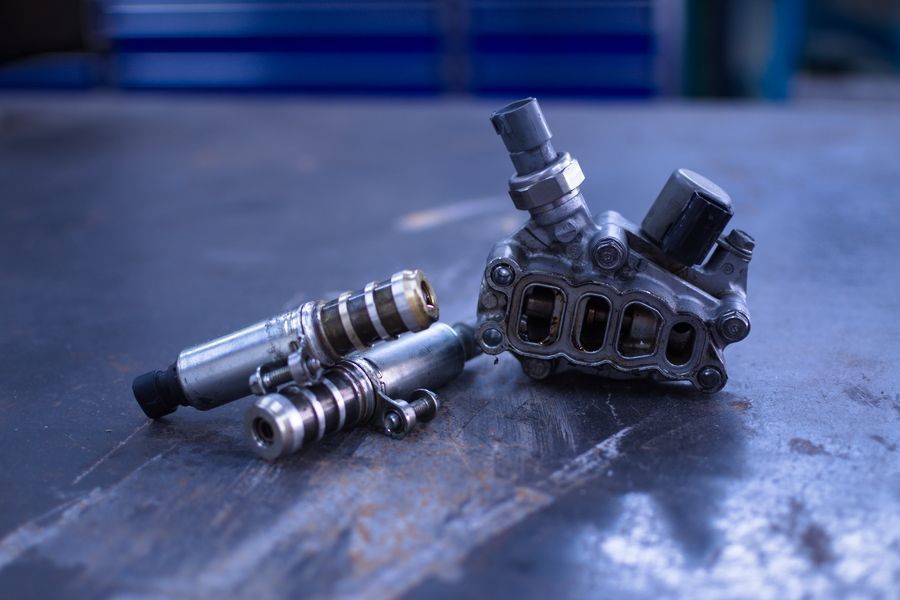
What Is Variable Valve Timing?
Variable Valve Timing is a system that adjusts the timing of the engine’s intake and exhaust valves. These valves open and close to allow air and fuel into the engine and to let exhaust gases exit. Traditional engines have fixed timing for these valves, but VVT technology can change this timing based on driving conditions.
How Does VVT Work?
Here’s a simple breakdown of how Variable Valve Timing operates:
Timing Adjustment:
VVT systems use mechanisms such as gears, camshafts, or hydraulic actuators to alter the timing of the valve openings and closings. This adjustment is made according to engine speed and load.
Optimizing Performance:
By changing the timing, VVT allows the engine to operate more efficiently across different speeds. At low speeds, it can improve fuel efficiency, while at high speeds, it can boost power and performance.
Enhanced Efficiency:
VVT helps the engine breathe better, which means it can get more power from the same amount of fuel. This results in better acceleration, smoother operation, and improved fuel economy.
Types of VVT Systems
There are a few different types of Variable Valve Timing systems, each with its own method of adjusting valve timing:
VTEC (Variable Valve Timing and Lift Electronic Control):
Developed by Honda, VTEC uses multiple camshaft profiles to switch between high and low performance settings.
VVT-i (Variable Valve Timing with Intelligence):
Toyota’s system, VVT-i, adjusts the timing of the intake valves to improve performance and efficiency.
VANOS (Variable Nockenwellen Steuerung):
BMW’s VANOS system varies the timing of both intake and exhaust valves for optimized performance.
Benefits of VVT
Variable Valve Timing offers several advantages for your vehicle:
Improved Fuel Efficiency:
By optimizing valve timing, VVT can make your engine use fuel more efficiently, which helps save money on gas.
Increased Power:
VVT can enhance engine performance, providing better acceleration and more power when you need it.
Reduced Emissions:
With more efficient combustion, VVT helps reduce harmful emissions, making your car more environmentally friendly.
Smoother Operation:
VVT helps the engine run more smoothly, reducing vibrations and noise.
Maintaining VVT
To keep your VVT system in top condition, consider these maintenance tips:
Regular Oil Changes:
Since VVT systems rely on hydraulic components, keeping your engine oil clean and at the proper level is crucial for smooth operation.
Check for Warning Signs:
If you notice a decrease in performance, rough idling, or unusual engine noises, it might be time to have your VVT system inspected.
Scheduled Maintenance:
Follow your vehicle’s maintenance schedule and have your VVT system checked during regular service visits.
Trust David’s Automotive Repair for VVT Service
At David’s Automotive Repair, we understand the importance of maintaining a properly functioning Variable Valve Timing system. Our experienced technicians are ready to diagnose and repair any issues with your VVT system to ensure your car performs at its best.
Visit us at 4915 Branch Hollow Dr, The Colony, TX, or call us at
972-625-1836
to schedule an appointment. Let us help you keep your engine running smoothly with expert VVT service and maintenance!
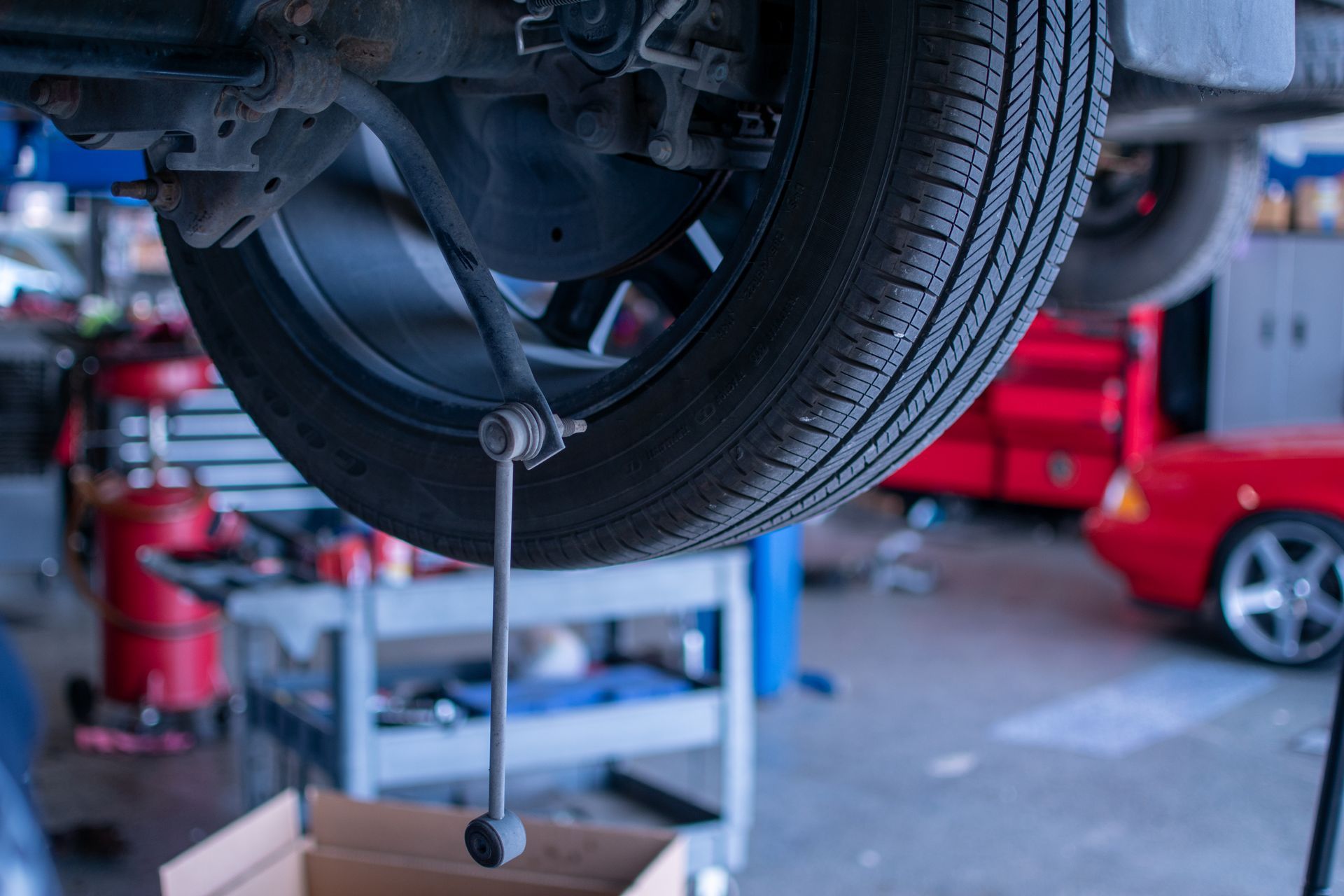
It connects both sides of the suspension, helping your tires stay firmly on the road. The sway bar end links attach the bar to the suspension and allow it to do its job. Over time, these parts can wear out, making your car feel less stable and harder to control. If your sway bar or end links are worn, you might hear clunking or rattling noises when driving over bumps. Your car may feel loose or wobbly when turning, and in some cases, it might lean more than usual in curves. Damaged sway bar components can also affect your steering, making it feel less responsive. Ignoring a worn sway bar or broken end links can lead to poor handling and extra stress on your suspension. If your car isn’t feeling as stable as it should, it may be time for a suspension repair. At David’s Automotive Repair, we’ll check your suspension and make sure everything is working properly. Call us at 972-625-1836 to schedule a reservation today.
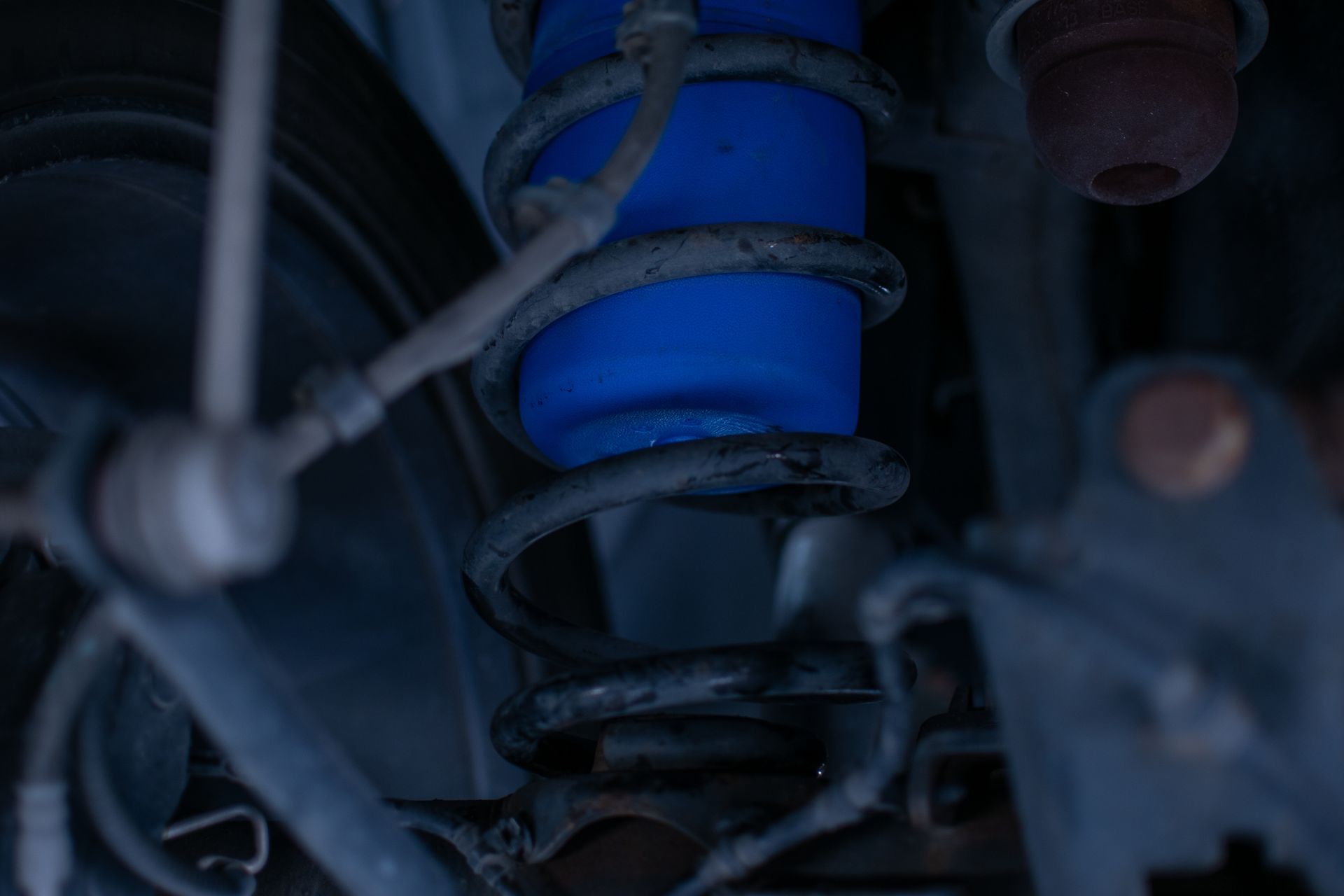
They work with your struts or shocks to keep your ride smooth and stable. Over time, springs can weaken or even break, making your car harder to control and less comfortable to drive. If your springs are worn out or broken, you might notice your car sitting lower than normal, especially on one side. You may also hear clunking noises when driving over bumps or feel your ride becoming rougher. In some cases, broken springs can make your car lean in turns or cause extra strain on other suspension parts. Driving with bad springs can lead to uneven tire wear, poor handling, and more expensive repairs down the road. If your car isn’t riding as smoothly as it should, it may be time for a suspension repair. At David’s Automotive Repair, we’ll inspect your suspension and make sure your car is safe to drive. Call us at 972-625-1836 to schedule a reservation today.
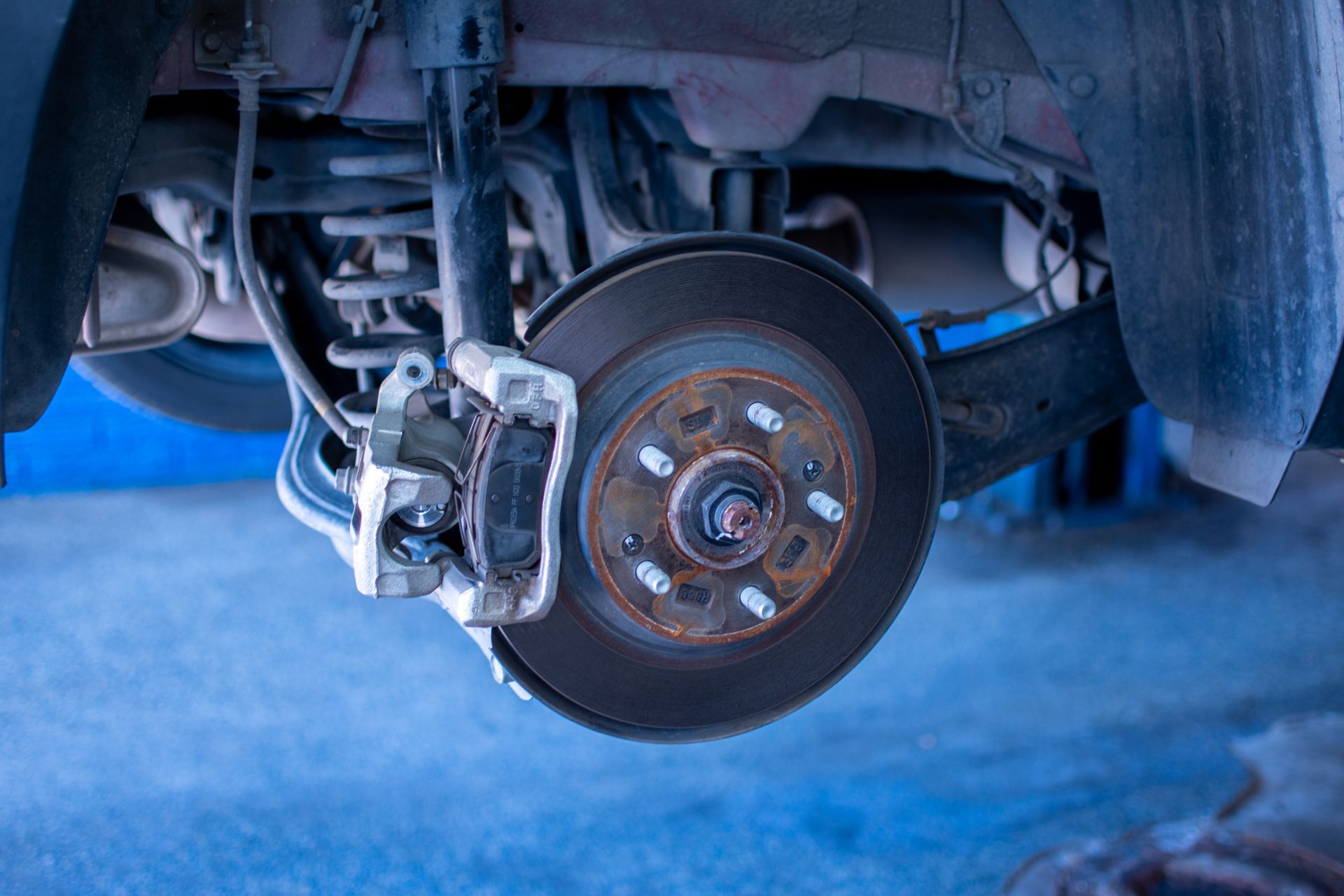
If something doesn’t feel quite right—like squeaking, grinding, or a longer stop than usual—it’s time to get them checked. At David’s Automotive Repair, we’re offering a FREE brake inspection to give you peace of mind and keep your family safe on the road. Plus, take $25 OFF your brake pad and rotor replacement when service is needed! What We Check During Your Free Brake Inspection: When you bring your vehicle in, our certified technicians will perform a complete brake system inspection, including: • Brake pad thickness • Rotor condition • Brake fluid level and quality • Brake caliper performance • Brake lines and hoses • Parking brake (emergency brake) function • Signs of uneven wear or damage • Test drive to check braking response If your brakes need attention, we’ll walk you through what we find in simple terms and offer a no-pressure recommendation. Don’t wait until you hear a grinding noise—book your free brake inspection today and save $25 if you need brake service! 📅 Schedule Your Reservation Now Upon drop off of your vehicle, let your service advisor know that you want your FREE brake inspection AND $25 off brake pads and rotors! 📍 Serving The Colony, Castle Hills, Frisco, Little Elm, Lewisville & beyond 📞 Call us at 972-625-1836
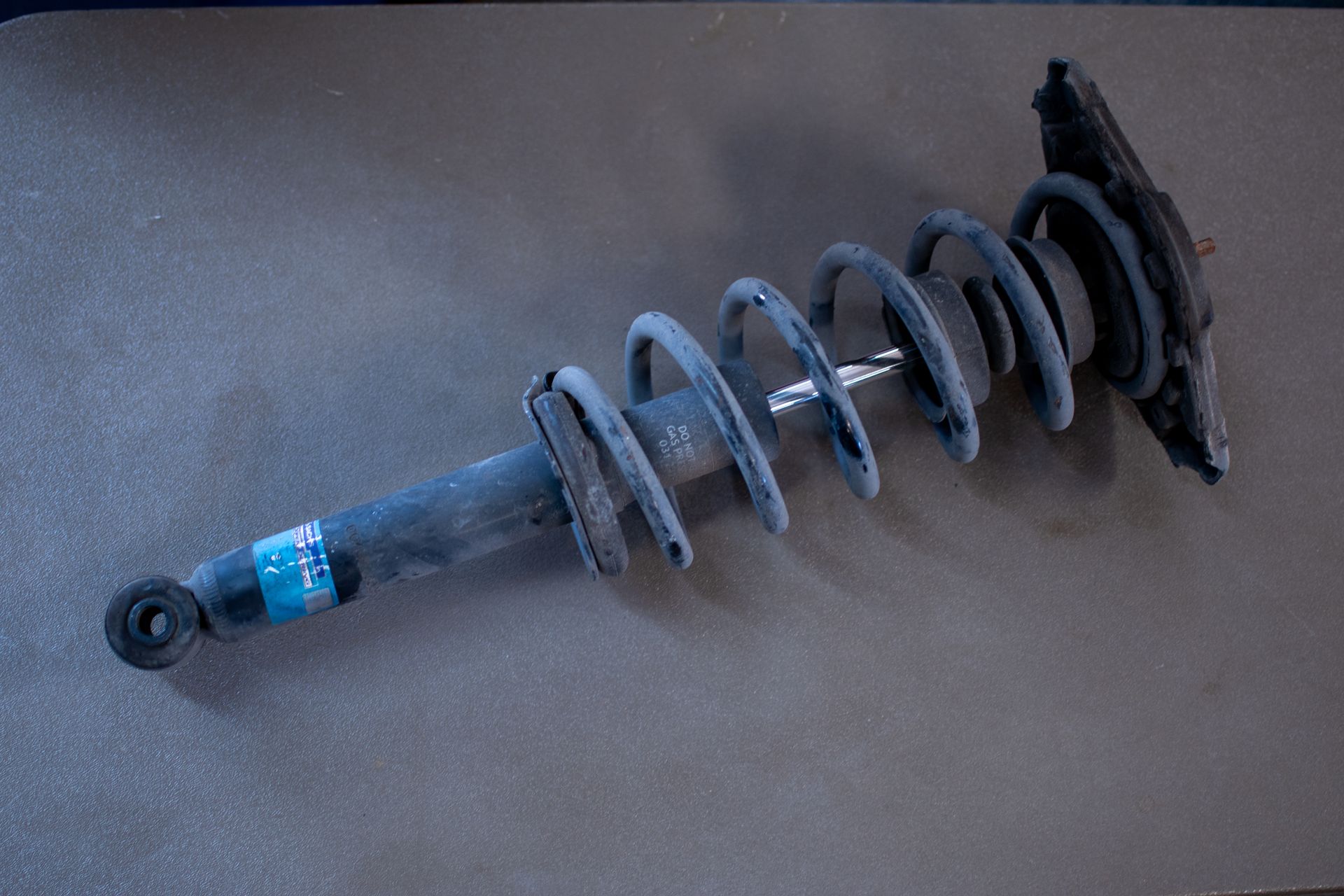
They absorb bumps, support your car’s weight, and help with steering and braking. Over time, they wear out, making your car harder to handle and less comfortable to drive. If your struts are bad, you might notice your car bouncing too much after hitting a bump or feeling shaky when turning. The front end may dip forward when you brake, or you might hear clunking noises when driving over rough roads. Worn struts can also cause your tires to wear unevenly, making it harder to stop and steer, especially in bad weather. Driving with bad struts can lead to bigger suspension problems and more costly repairs. If your car feels rough or isn’t handling like it should, it may be time for suspension repair. At David’s Automotive Repair, we’ll check your suspension and make sure your car is safe to drive. Call us at 972-625-1836 to schedule a reservation today.

Over time, they wear out, making your car harder to control and less comfortable to drive. When shocks go bad, you might notice your car bouncing more than usual, especially after hitting a bump. The front end may dip forward when you brake, or the back end may squat when you accelerate. You might also hear clunking noises or feel your steering becoming less responsive. Worn shocks can even cause uneven tire wear, which affects your car’s grip on the road. If your ride feels rough or your car isn’t handling like it used to, it’s time for an inspection. At David’s Automotive Repair, we’ll check your suspension and make sure everything is working as it should. Call us at 972-625-1836 to schedule a reservation today.
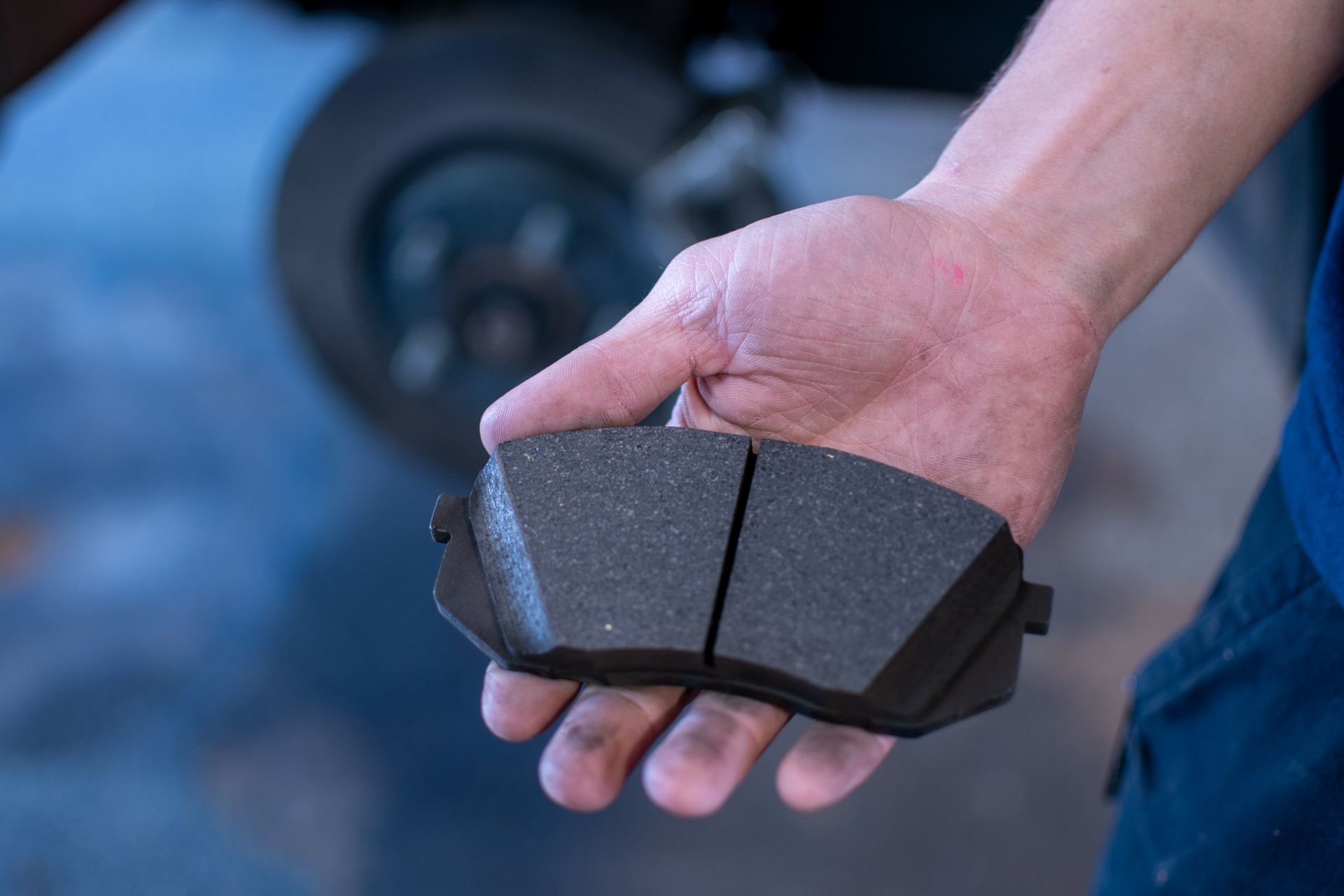
They hold the brake pads and press them against the rotors when you step on the brake pedal, helping your car slow down or stop. Over time, calipers can wear out or get stuck due to dirt, rust, or leaks. When this happens, your car might pull to one side, your brake pads may wear unevenly, or you could notice a burning smell after driving. A stuck caliper can put extra stress on your brakes and tires, leading to bigger and more expensive problems. If your brakes don’t feel right, it’s best to have them checked before the issue gets worse. At David’s Automotive Repair, we’ll make sure your brakes are working properly. Call us at 972-625-1836 to schedule a reservation today.
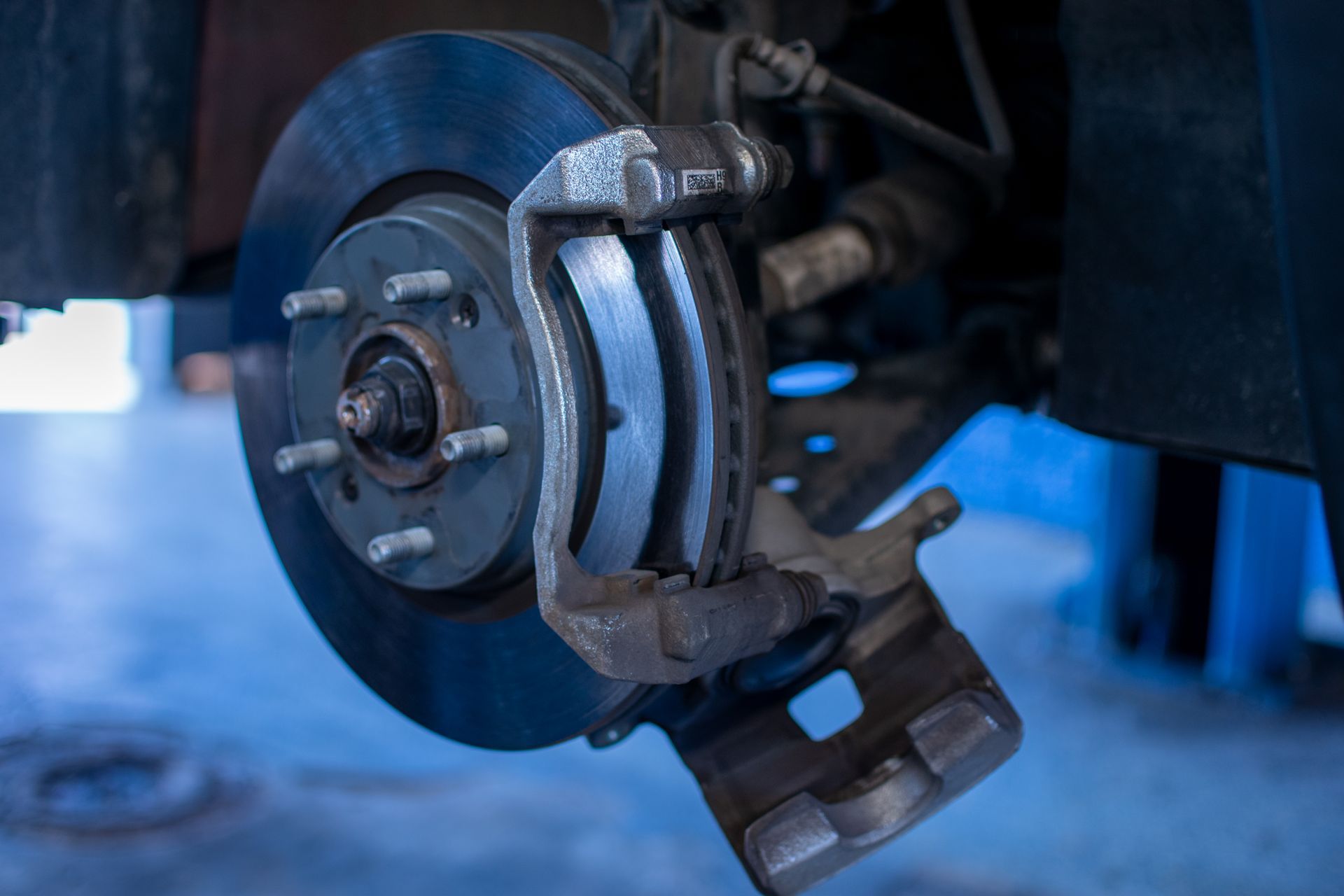
Over time, both wear down from the friction created every time you press the brake pedal. Brake pads are designed to press against the rotors, creating the stopping power needed to slow your car. When pads wear too thin, they can’t grip properly, leading to longer stopping distances and potential damage to the rotors. Rotors, the metal discs that the pads press against, also wear down and can become damaged and grooved, causing vibrations or squealing noises when braking. If you hear squeaking, grinding, or feel vibrations when stopping, it may be time to have your brake system checked. Ignoring these warning signs can lead to more expensive repairs and put your safety at risk. At David’s Automotive Repair, we inspect your brakes to ensure everything is working as it should. If you’re noticing any issues, give us a call at 972-625-1836 to schedule a reservation.
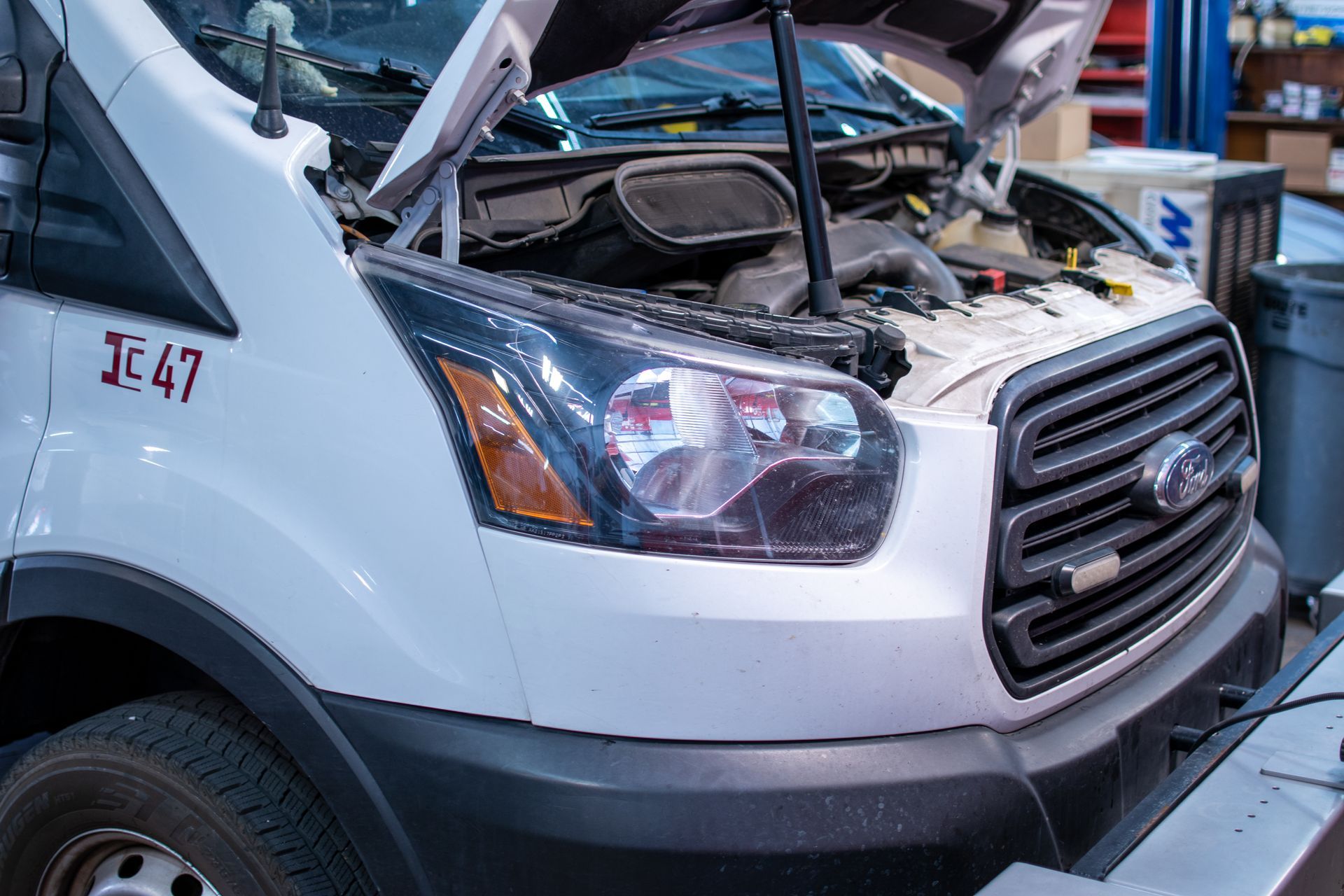
Regular maintenance is the best way to keep your vans on the road, prevent costly repairs, and avoid unexpected downtime. Routine services like brake inspections, tire rotations, fluid checks and flushes, battery testing, and alignments help extend the life of your fleet and improve fuel efficiency. Catching small issues early—like unusual noises, sluggish performance, or dashboard warnings—can prevent bigger problems down the road. When repairs are needed, getting them done quickly is essential to keeping your business on track. At David’s Automotive Repair, we know that every minute your van is off the road costs your business time and money. That’s why we offer same-day repairs whenever possible to get your fleet back in action fast. Call us at 972-625-1836 to schedule a reservation and keep your vans running strong!
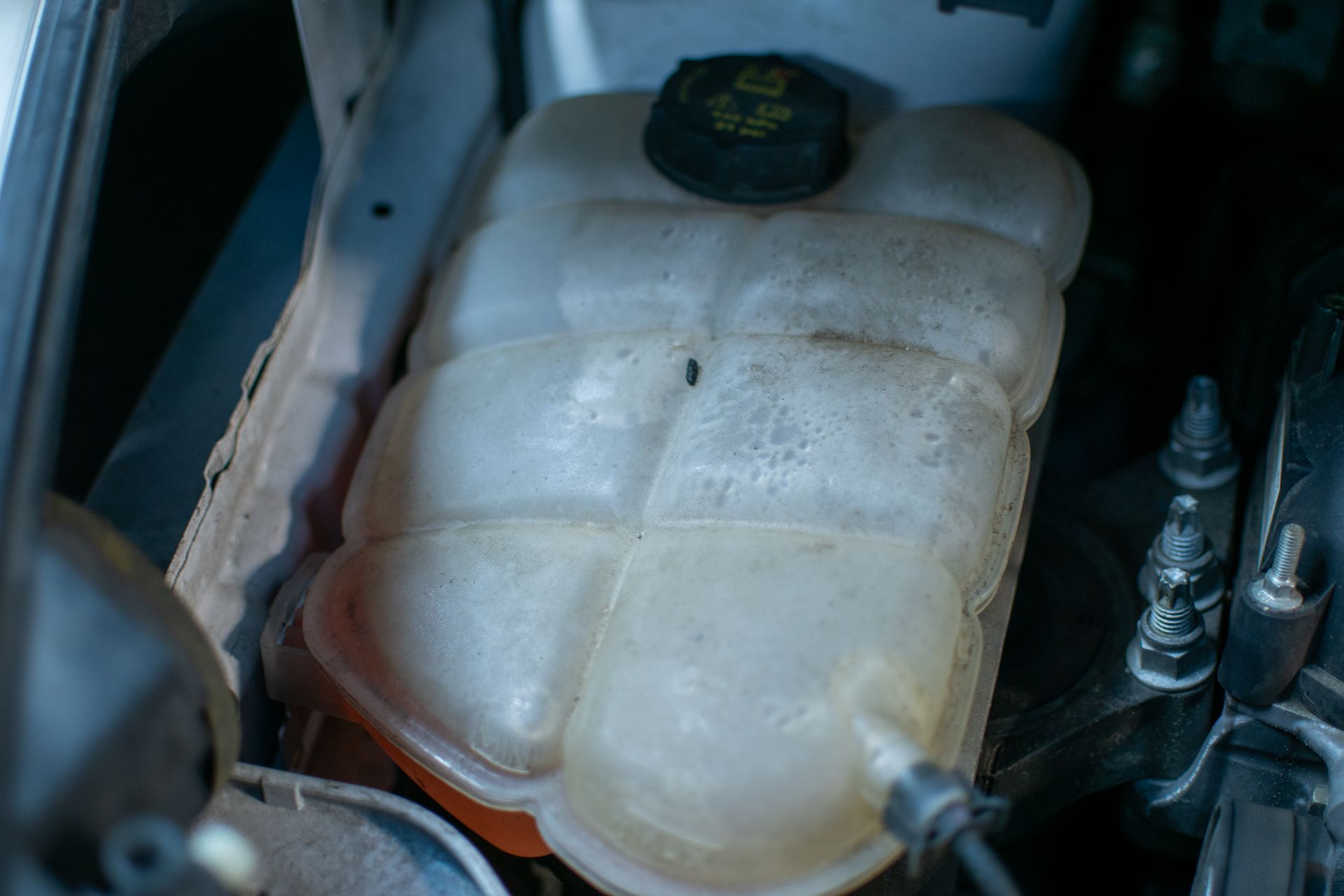
One common cause is low coolant levels. Your engine needs coolant to stay at the right temperature, and if there’s a leak or not enough fluid, it can overheat. A failing thermostat might also be to blame. If it gets stuck, it can prevent coolant from flowing properly. Other possible causes include a faulty water pump, a clogged radiator, or a broken cooling fan, all of which help regulate engine temperature. If your temperature gauge keeps rising, it’s best to have your car checked right away. Driving with an overheating engine can lead to costly repairs or even a breakdown. At David’s Automotive Repair, we can diagnose the problem and get your cooling system working properly again. Call us at 972-625-1836 to schedule a reservation today!
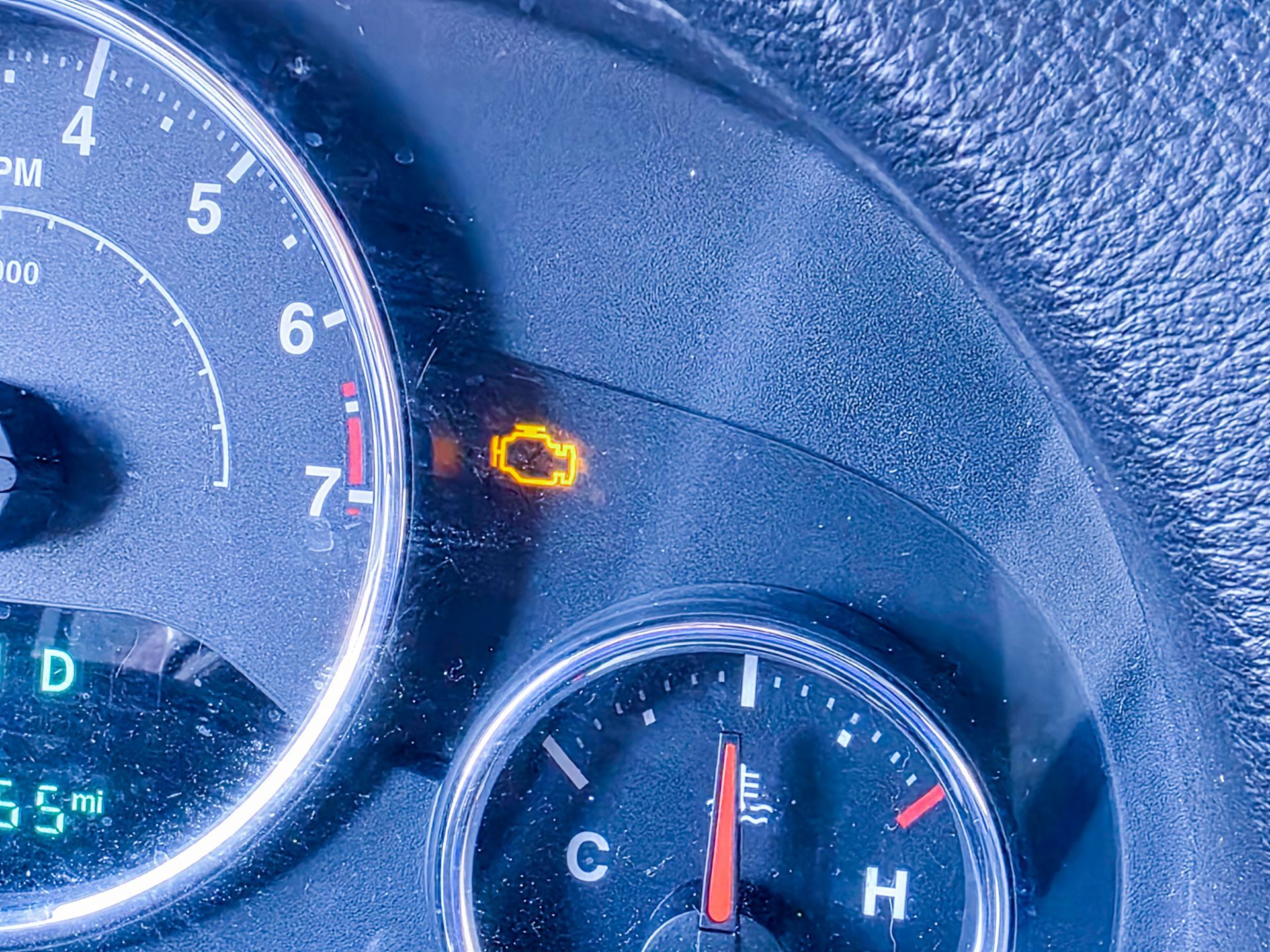
The light can come on for many reasons, from a loose gas cap to a more serious engine issue. If the light is steady, your car may still be safe to drive, but you should have it checked soon. If it’s flashing, it could mean a more urgent problem that needs immediate attention. In either case, it’s best to avoid long drives until you know what’s wrong. Getting your car checked as soon as possible can prevent small problems from turning into costly repairs. At David’s Automotive Repair, we can perform testing and analysis to find out what’s causing your check engine light to come on. Don’t wait until it leads to bigger issues—call us at 972-625-1836 to schedule a reservation today!



